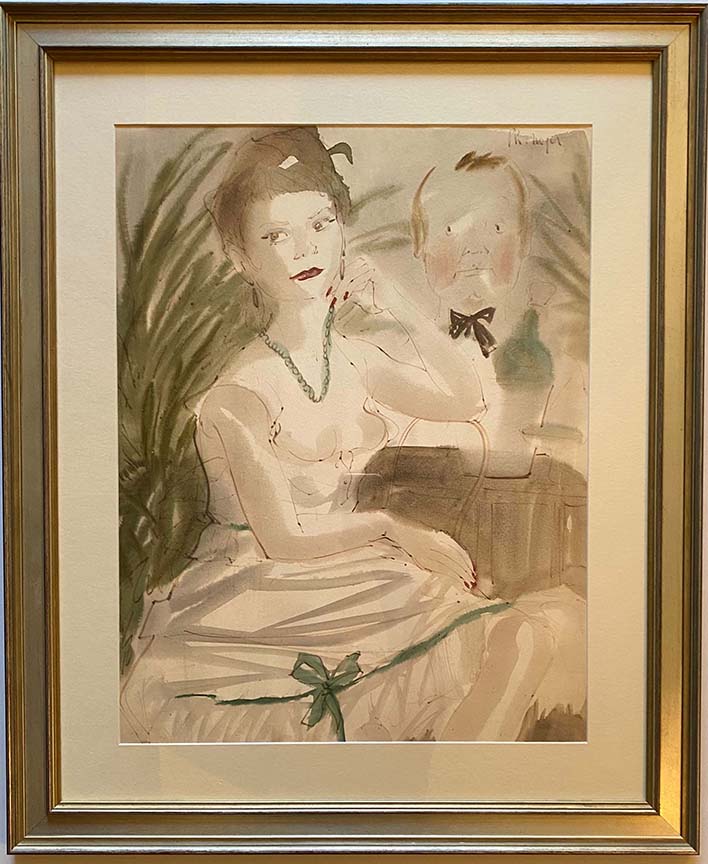

PHILIPPE NOYER
"PATRICIA AU DIVAN VERT"
OIL ON CANVAS, SIGNED, TITLED
FRANCE, DATED 1963
25.75 X 39.5 INCHES
PHILIPPE NOYER
"AU BAR"
WATERCOLOR, SIGNED
FRANCE, C.1960S
25.5 X 19.5 INCHES
Philippe Henri Noyer 1917-1985 Philippe Henri Noyer was born on June 28, 1917 in Lyons, France. After a traditional education at the elite Ecole des Roches, Noyer enrolled in the Ecole des Beaux Arts in Lyon. Next he moved to Paris, where he worked in decorative arts and advertising. It was during this time, he discovered his talent for oil painting, officially starting his painting career in 1943. That same year, Noyer met the famed Parisian art deal, Emmanuel David, who would promote his work and career. Noyer produced many portraits, for which he quickly gained an international reputation, but he also painted dream figures in rural or maritime settings, compositions that were classical in technique but surreal in concept. In 1947, Noyer held his first one-man show at the prestigious Drouant-David Gallery in Paris. In 1949 the gallery consigned twenty of Noyer’s paintings to an American art dealer who had agreed to organize an exhibition of them in the United States. However the American dealer sold the paintings at cost, in order cover a gambling debt, to Robert Goldstein, the former President of the 20th Century Fox movie company. Goldstein was so pleased with his purchase, that he distributed the art to his friends, including Samuel Goldwyn, who, in turn, made Philippe Noyer’s name known on the West Coast. These events led to a lifelong friendship between Noyer and Goldstein. In the years that followed, Noyer was commissioned to paint portraits of many celebrities including Elizabeth Taylor, Dinah Shore, and Jean Wallace. In the sixties, Noyer put aside portraiture in favor of painting delicately stylized, sophisticated, slim, long-limbed ladies who were his favorite subject. Throughout his career, Philippe Noyer's art has always remained quite unique. He seems to have experienced every kind of modern art without being influenced by any of them, almost lazily accepting traditional disciplines. Modernist yet slightly Surrealist, he compensated for the rigor of his method by the remarkable freedom of his subjects. The elements Noyer uses in his paintings - the women, the monuments, the animals and the flowers - come alive under the brush which translates them in strictly realist terms in compositions that are the fruits of his fantasy and intellectual or literary reminiscences. Paul Guth was inspired to write a series of prose poems about his work, which was published in 1951 together with a study of the artist. |